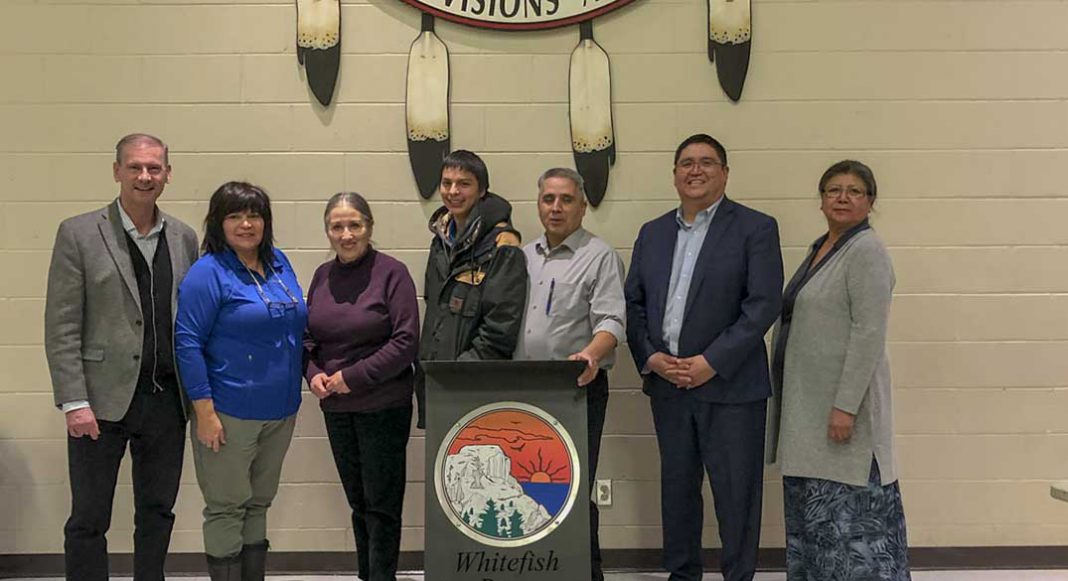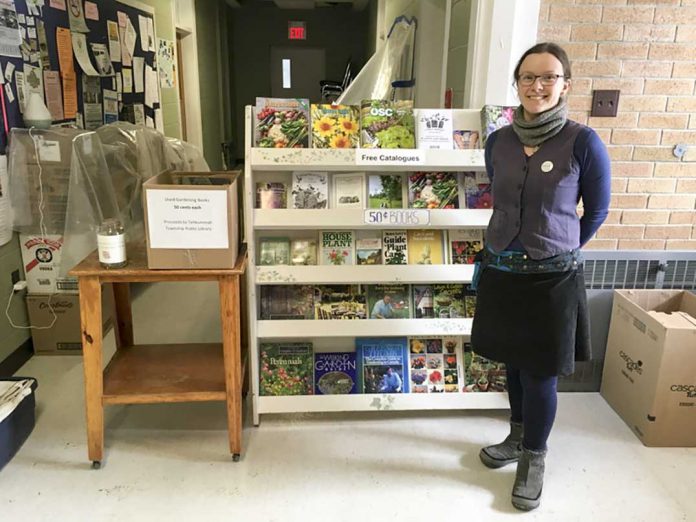WHITEFISH RIVER FIRST NATION—A presentation on progress being made in the Indian Day School Class Action Suit was held on January 23 in Whitefish River First Nation. The presentation was attended by around 50 community members who heard presentations by legal staff from Gowling WLG (Canada) LLP, the law firm spearheading the class action.
“We are starting on our journey together to begin our discussion on the Indian Day School that was established circa 1884 up to 1973,” noted Chief Shining Turtle. “We are here tonight to support each other and to learn more about the Indian Day School Class Action Lawsuit with representatives of Gowling, Jeremy Bouchard and Robert Winogron that are working on this file.”
In 2009, Garry McLean of Manitoba started a legal action regarding the forced attendance of Indigenous students at the so-called Indian Day Schools across Canada. This proposed national class action is the first of its kind and seeks compensation for the damages and abuses suffered by all Indian Day School students who were forced to attend Indian Day Schools from 1920 onward and who were excluded from the Indian Residential Schools Settlement Agreement.
Lawyers Robert Winogron and Jeremy Bouchard explained that Indian Day Schools include “all those day schools established or designated as such by the federal Department of Indian Affairs in which Aboriginal students across Canada were required to attend by law (Indian Act), and were funded in part or solely by the federal government. Unlike Indian Residential Schools, students did not reside at Indian Day Schools. Only in very limited circumstances (seasonal weather conditions etc.) would a student reside at an Indian Day School.”
The lawyers went on to explain that Indian Day Schools were operated and maintained by those very same religious organizations who administered Indian Residential Schools, including the Roman Catholic Church, the Church of England, as well as Methodist and Presbyterian denominations.
“We actually had two schools in our community,” noted Chief Shining Turtle. “There was a Church of England school and one run by the Catholics.” The chief explained that the information session had come out of conversations with the elders and the Gowling staff had been invited to make a presentation as to what it was all about.
The McLean class action covers all students who attended Indian Day Schools that operated separate and apart from Indian Residential Schools. This includes students who are Metis or Inuit, as well as First Nations students.
Further, explained the lawyers, the class action also covers the families (spouses, former spouses, children, grandchildren, or siblings, and their spouses) of students who attended Indian Day Schools. To date, there is no other national class proceeding which has sought or obtained compensation for the damages suffered by Indian Day School survivors and their families.
There is currently no deadline to register for the class action suit, but if a settlement agreement is reached, notification of the registration deadline will be widely published.
The class action was certified (approved) on June 21 as a class proceeding and on December 6 Garry McLean and Minister of Crown-Indigenous Relations Carolyn Bennett jointly announced that an agreement-in-principle had been reached between the parties. The agreement-in-principle includes individual compensation for harms suffered while attending an Indian Day School including cultural harm and physical and sexual abuse. In addition to the individual compensation, the agreement-in-principle provides for $200 million in funding available to support healing, wellness, education, language, culture and commemoration. Specific details regarding individual compensation will be made available in early 2019. The court still has to approve any terms of settlement, which the law firm intends to seek in spring of 2019.
The plaintiffs are represented by class counsel Robert Winogron and Jeremy Bouchard of the law firm Gowling WLG (Canada) LLP. Mr. Winogron and Mr. Bouchard have over 30 years of combined legal experience in the area of aboriginal law and litigation. Gowling WLG is a national law firm which provides representative work on behalf of First Nations and aboriginal organizations across Canada.
Chief Shining Turtle noted that the next step for the community is gathering information on the two schools that were in the community. “We will be collecting information at our Winter Carnival, February 19 to 24,” he said. “Right now it is important to get the word out and learn as much as we can about the schools that were in our community, the priests, the teachers, the students, everything we can collect, from old pictures to stories about attending the schools.”
More information can be found at the class action webpage ca.gowlingwlg.com/dayschoolclassaction and a registration form can be found at that site.
“It’s important that people know that they don’t have to hire their own lawyers or advisors for this class action,” noted Chief Shining Turtle. “People don’t have to spend money out of what they get from any settlement for this.”
“We are starting this journey together, all of us, as thoughtful learners,” continued the chief. “Most of all what we need for this journey is to create a respectful space for sharing with each other our knowledge and experiences and concerns and most importantly, information.”





